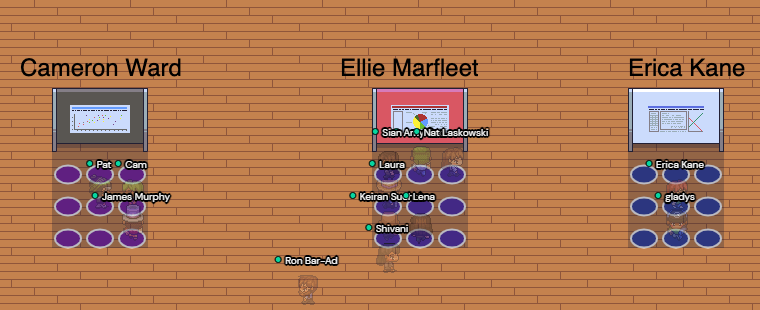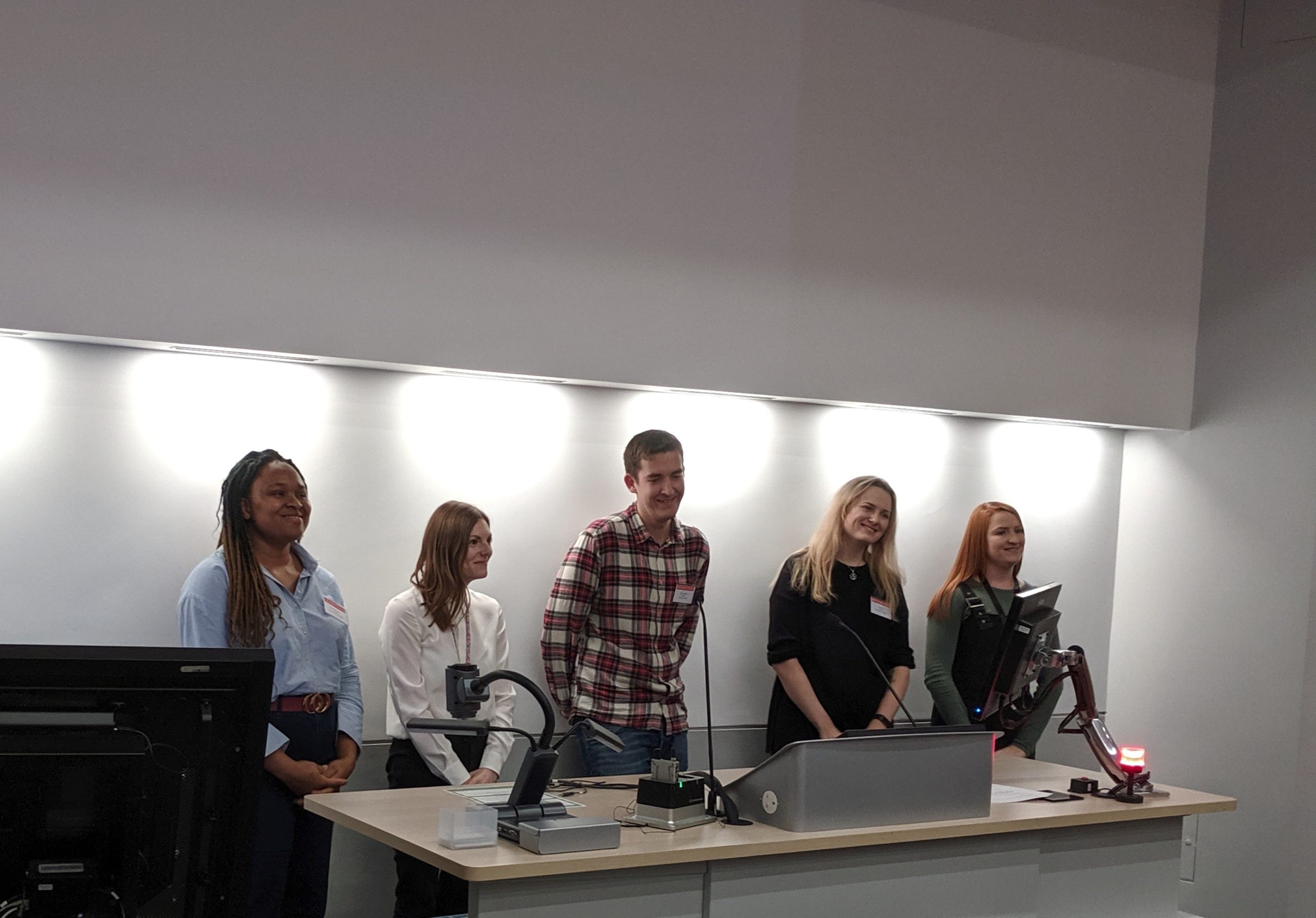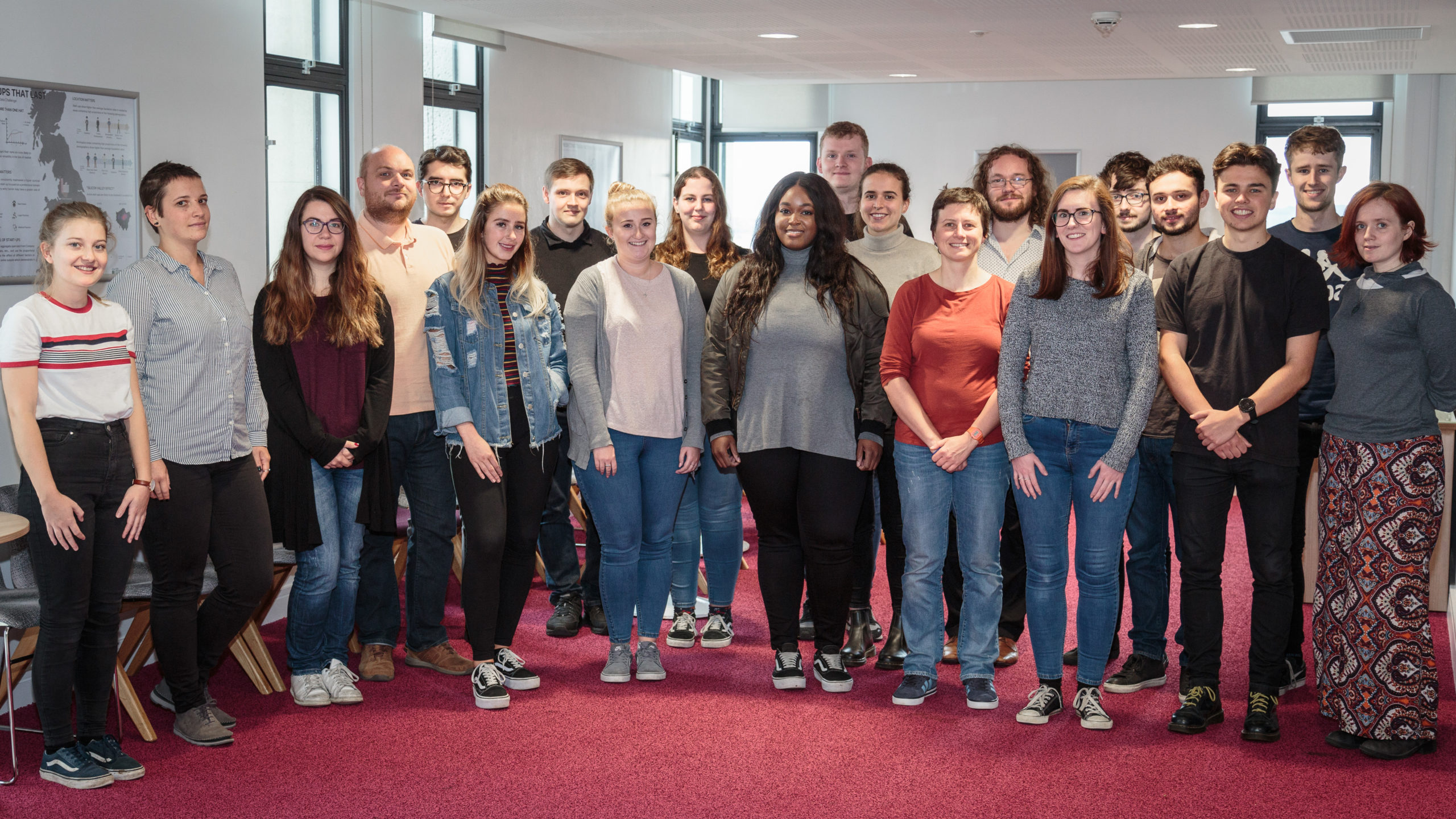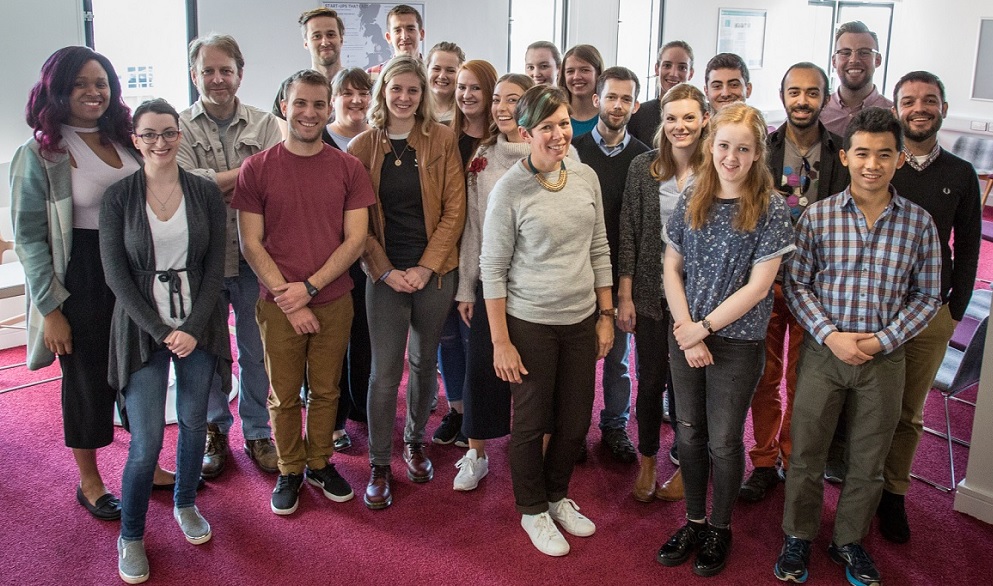A few weeks ago, I handed in my thesis. I’m part of the first cohort of students to go through the Data Analytics and Society CDT programme. As I come through the other side, I’ve found myself at a crossroads in my career. My thesis explores the utility of supermarket transaction records for population dietary monitoring and I have been lucky enough to work in partnership with a large UK retailer during my PhD. So where to next? Academia? Industry? Third sector?
As I look ahead to my next steps, it’s also an opportunity to reflect upon the experiences which have shaped my growth and built my confidence as a researcher over the last four years. One of those experiences was my secondment with the National Food Strategy Team at DEFRA. I share my reflections with you now in the form of four key lessons that I learnt along the way. By sharing these four lessons, I hope they may inspire other PhD students and early career researchers to engage with policy issues outside of the University space, and to reap the rewards that it can bring.
I am grateful that the CDT supports and actively encourages its students to work in different settings – through internships, overseas institutional visits, and secondments. For any students considering a placement or internship opportunity during their studies, I would say – go for it! It will offer exposure to another sector and widen your professional network immensely.
My secondment wasn’t planned, but it wasn’t simply luck either. As with many things, it was an example of how we can create our own luck, through strategic thinking, networking, and harnessing our skills. In a way, you could say I was in the right place at the right time, but importantly, with the right message. The four lessons I’m sharing here, helped me to build an environment for opportunities to happen, and to grab one with both hands.
Right time
The opportunity to work with DEFRA arose from my dissertation on the Data Analytics and Society MSc programme. I’d become familiar with retail product nutrition data, and had come across plans for forthcoming legislation to restrict promotions of food considered high in fat, salt and sugar (HFSS). My MSc analysis highlighted how a mis-match in data availability and data requirements contributed challenges to implementation of the legislation which could potentially hinder its success.
I could have left it there. I’d done what I needed to do to complete my MSc, and I had a PhD to work on. But then nobody would read it. The policy landscape was changing right now. The conversation was happening right now, and I had something to contribute.
Lesson 1: strike while the iron is hot. In other words, when your research aligns with a moment of policy change or national interest, your audience will be at their most receptive. Shuffle your priorities if you can to join the active conversation.
With support from my PhD supervisors, I followed my dissertation with two papers published in Nutrition Bulletin which highlighted the data-related challenges, and the perspectives of industry stakeholders for how they could be overcome.
Right message
Journal articles are a great output, but policymakers are unlikely to read them. To reach policy circles, I needed something punchier and more digestible. This is when I learnt a second important lesson.
Lesson 2: make the most of the wider university network. As academics, we become adept at communicating with other academics, through journal articles and conference presentations. But translating our findings for other audiences can be a challenge. I was grateful to discover that the University has a brilliant support network of experienced colleagues with the skills to help give your work a wider reach. Working with communications colleagues at the Leeds Institute for Data Analytics (LIDA), the Consumer Data Research Centre (CDRC), and Policy Leeds, I developed a policy brief which summarised my findings, and devised an actionable dissemination plan.
Right place
Combining my own contacts with those of my PhD supervisors and policy and communications colleagues, I now had a much wider network of contacts with whom to share my work. I’ve never felt particularly comfortable with networking, and find it difficult to put myself out there. But my dissemination plan gave me the confidence to go for it and taught me another important lesson.
Lesson 3: don’t be afraid to reach out to old and new contacts. Even if you haven’t met before or you haven’t been in touch for a while, if your message is of interest, they will be glad to hear from you. Generally, there is nothing to lose, and you never know where it might lead.
I was particularly fortunate to have a champion in the form of my lead supervisor, Dr Michelle Morris. A champion is someone with influence, who can advocate for you, throw your name into the ring, and open doors. Thanks to Michelle, my policy brief got in front of DEFRA and conversations with the National Food Strategy team started.
My secondment with the National Food Strategy
I was in the right place, at the right time, and with the right message. The National Food Strategy has been described as a once in a generation opportunity to influence the UK’s food system for the better. And they were talking to me!
Lesson 4: take opportunities when they arise even if they weren’t part of your original plan. By pursuing something I believed in at a time when people were prepared to listen, having a message that was accessible and easily shared in the form of a policy brief backed up by academic papers, and spreading that message among a network of contacts, a door had opened for me.
The National Food Strategy (NFS) team were exploring different policy approaches to ‘break the junk food cycle’ and improve the nation’s diet. What might different strategies look like, how might they be implemented, and how effective would they be? The team was interested in my insight on the HFSS legislation and how the challenges I had identified could be avoided. It turned out I had the right mix of data science skills, food industry experience and research competence that they needed, and I was asked to join the team. I hadn’t planned it, but here I had an amazing opportunity to work with policymakers on the inside.
I worked with the NFS team at DEFRA for four months at the beginning of 2021. During that time, I gained a fantastic insight into how the policy world works, and developed a lot of contacts across government, academia, industry and the charity sector. Mainly I worked on a project to model the impacts of a food manufacturer’s levy on added salt and sugar, and contributed to an Institute for Fiscal Studies working paper which supported the strategy’s first recommendation: to introduce a sugar and salt reformulation tax. I also contributed to other areas of the strategy, analysing and sourcing data to inform recommendations. During my secondment I worked with the NFS expert advisory group on health, which exposed me to how researchers can interact with policymakers, and the importance of critically evaluating a policy idea from many different perspectives. I also developed my communication skills, with practice in pitching ideas and translating research to senior members of the team. My experience with DEFRA showed me that the skills I have gained during my PhD are transferrable to other sectors, expanding my future employment possibilities.
My secondment has strengthened my desire to work across sectors and create wider impact through my work where possible. Knowing that I have contributed in a small way to a set of national food system recommendations is incredibly rewarding. Like the rest of the nation, I must wait and see whether the NFS recommendations will be taken forward by government, but I continue to be involved in conversations around the role of data to create a healthier food system as a result of the secondment. In particular, I represented the University of Leeds in the N8 Agrifood response to the NFS report, commenting on recommendation 2: to introduce mandatory reporting for large food companies; and recommendation 12: to create a National Food System Data programme and remain part of a network of Leeds researchers engaged in this space.
I don’t know what’s next for me, but I will continue to apply the four lessons I learned on the journey to my secondment, and am excited to see where they will take me.
- Strike while the iron is hot
- Make the most of the wider university network
- Don’t be afraid to reach out to old and new contacts
- Take opportunities when they arise
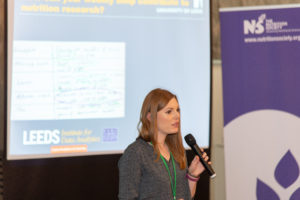 This piece was written by Vicki Jenneson, BSc, MPH, MSc, ANutr, a member of our first cohort of students, graduating in 2022. Vicki is now a Research Associate for the Consumer Data Research Centre, University of Leeds.
This piece was written by Vicki Jenneson, BSc, MPH, MSc, ANutr, a member of our first cohort of students, graduating in 2022. Vicki is now a Research Associate for the Consumer Data Research Centre, University of Leeds.
